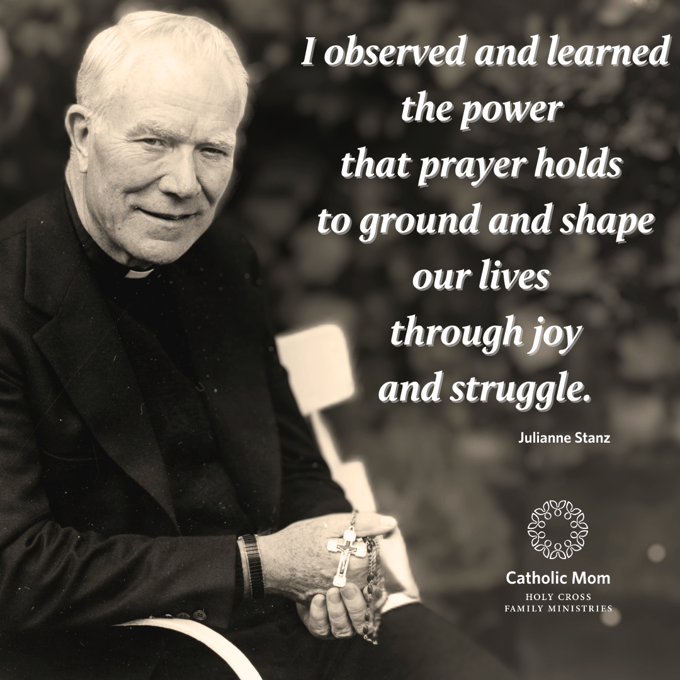Growing up in a small village in Ireland, it was from my Grandmother Hannah, whom we called Nanny, that I observed and learned the power that prayer holds to ground and shape our lives through joy and struggle. She was the first person I saw praying the Rosary. Never far from her gnarled, arthritic hands, the beads moved between her fingers in a fluid rhythm as her lips murmured the familiar words.
Like her ancestors before her, Nanny’s day was permeated with prayers—in particular, blessings, that uniquely Irish form of prayer that grounds even our mundane practices in gratitude. Every act she undertook, from making the bed to baking her soda bread, was grounded in the prayers whispered in her breath.

Despite having outlived two husbands and raising a small army of children, all were welcomed to Nanny’s home with love, and she had a word of encouragement for the weary, the difficult, and the lost. At her table, she offered her mouthwateringly delicious soda bread and a cup of tea so strong that you could “stand up in it” and dispensed spiritual snippets and practical advice from her chair by her old Aga stove, which she fed generously with wood and coal regularly. The sound of her Rosary beads jingling in her pocket as she walked was a subtle reminder that she walked, not by sight, but by the faith of her ancestors.

A Beautiful Rosary Legacy
Today, when I pray the Rosary, I often think of her and use the Irish Penal Rosary, known in our language as An Paidrín Beag. This particular form of the Rosary, a single-decade version, originated during the Penal Times in Ireland — a dark period when the practice of Catholicism and the praying of the Rosary were forbidden. The Penal Rosary is a compact, discreet version that allows the faithful to pray without drawing attention. The crucifix was hidden in the sleeve or palm, while the ring was placed on the thumb to begin the first decade. With each subsequent decade, the ring was moved to the next finger, continuing in this manner until all five decades were recited.
As I pray, I am deeply reminded of the resilience and faith of my ancestors, who, despite facing persecution, death, and despair, held fast to their beliefs through the simple yet profound act of praying the Rosary. A few years ago, my brother Ian gifted my daughter Ava our grandmother’s Rosary, and I wept with gratitude. As I hold it in my hands, I think of her faith and the faith of so many women who have passed on their love of the Blessed Mother and the Rosary to future generations.
Venerable Patrick Peyton, known as "The Rosary Priest," devoted his priestly life to encouraging family prayer, especially the Rosary. This October, for the Month of the Holy Rosary, Family Rosary (an apostolate founded by Father Peyton) and Catholic Mom have teamed up for this daily series dedicated to the Rosary.

 About the author:
About the author:
Julianne Stanz is the Director of Outreach for Evangelization and Discipleship at Loyola Press. Originally from Ireland, Julianne is the author of the best selling book Braving the Thin Places: Celtic Wisdom to Create a Space for Grace. You can catch up with her at JulianneStanz.com.